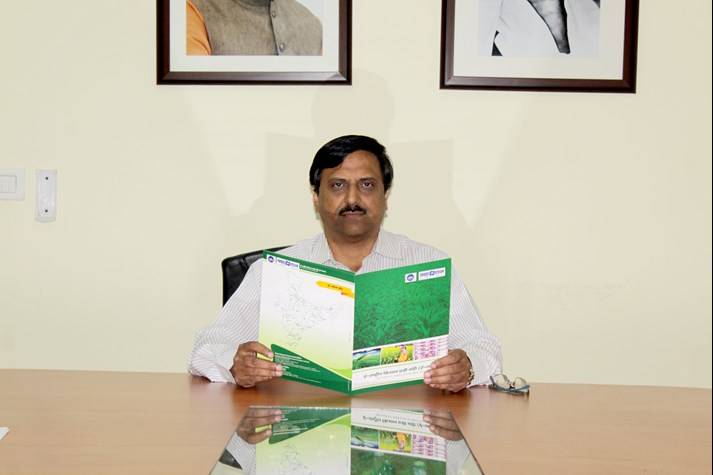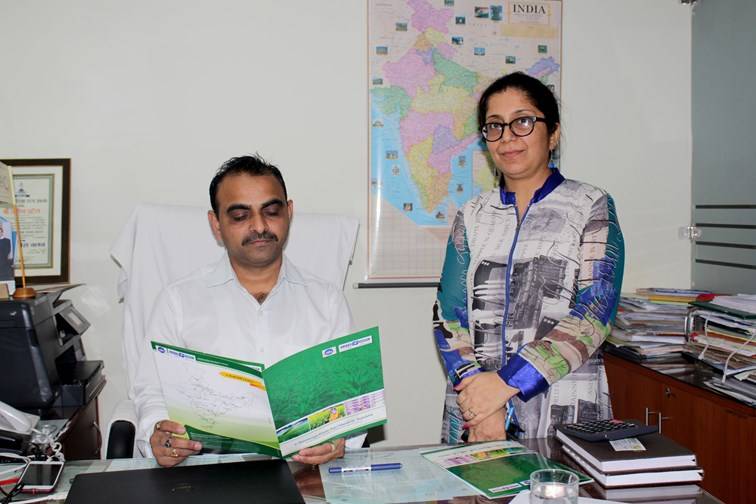
Dr. M.S. Swaminathan, father of Green Revolution, who once said: If agriculture fails, everything else will fail.
Agriculture is the lifeline of India’s economy. There is no other sector as critical for the country’s development and at the same time besieged by myriad challenges. Agriculture engages nearly half of India’s workforce and provides food security to the nation’s 1.3 billion people. It also provides livelihoods to more than 70% of rural households. Despite all this, the sector contributes less than 15% to GDP. The farmer’s per capita income is less than one-fifth of the country’s average.
In spite of increased consumer spending, the farmer gets only a minuscule share of the retail prices, due to the presence of various intermediaries. As a result, the farmers continue to be trapped in a vicious circle of low growth in income and productivity. Many farmers also face the accumulation of huge loans, which they are unable to repay.
The Green Revolution, initiated half a century ago, provided the first big leap for Indian agriculture and food security. The country became self-sufficient in food and from a net importer of grains into a net exporter. The government’s support to the farmers in the form of Minimum Support Price and other incentives have ensured food security for the millions. In this context, the intervention of Food Ministry in the setting up of institutions like Food Corporation of India and setting up of a nationwide Public Distribution system to sell essential food items at affordable prices is indeed laudable. The Ministry has also initiated various reforms in recent years under the able guidance of our Hon’ble Minister, Sh. Ram Vilas Paswan.
The agriculture sector today faces major challenges in terms of increased water stress and a growing threat of global warming. There are unpredictable weather patterns that create flood havoc in several parts of the country, while other areas turn drought-prone. The small farmers are particularly vulnerable to the threat of climate change. The new realities call for another revolution in agriculture, which would be technology-driven and guided by new thinking, new research , and new institutions. A market-driven approach that will support sustainable agriculture and ensure remunerative returns to the farmers is the need of the hour.
Apart from vagaries of nature, the farm sector also faces colossal agri-wastage, estimated at over Rs.92,000 crores, largely in perishables. There is increasing consumer demand for fruits, vegetables and other perishables, which can be effectively tapped with an integrated climate controlled infrastructure. Farming needs to be oriented to what consumer wants rather than what can be produced.
Our Hon’ble Prime Minister has enunciated his vision to double farmer incomes by the year 2022. This is indeed an inspiring and laudable vision providing unparalleled opportunity to usher in the next agricultural revolution. The increase in farmer incomes will need to be balanced with control in input costs and consumer prices. This calls for strengthening partnership between government, corporates both in public and private sector , farmers and other stakeholders.It is against this overarching vision of our Hon’ble Prime Minister that both MSTC and CRWC have joined hands together to create an agri-product e-Auction platform , named e- Rashtriya Kisan Agri Mandi (e-RaKAM) for the benefit of the agricultural community. Both MSTC, a leader in e-Commerce and Central Railside Warehousing Company Ltd. , with its logistics capabilities will endeavour to bridge the gap between the farmer and ultimate consumer through technology intervention. E- RaKAM provides a robust e-market platform for transparent sale transactions and price discovery. It will unshackle the potential of Indian farmers who have been trapped in the vicious cycle of middle men and low margins. The farmers will benefit by getting more options for selling produce and making competitive returns. The buyers, processors and exporters will gain access to a larger market. This will be a win-win situation for both as it will reduce intermediary cost and provide logistics solutions.

Through e-RaKAM, farmers will have the facility to consolidate their produce and sell at MSP and beyond. We propose to create an ecosystem with leading organisations like NAFED, FCI , State Civil Supplies Corporations, Mother Dairy, NABARD, Kribhco , Farmer Producing Organisations, logistics service providers, etc, to avail the existing network in the first stage. More players with capacities like internet cafes will be added gradually to ensure rural penetration. The portal services can be effectively used for both procurement and sale. In fact, e-RaKAM will supplement the efforts of e-NAM and aim for a flexible, farmer friendly agricultural market. It will be a major step towards reaching the benefits of Digital India down to the last farmer, as per vision of our Hon’ble Prime Minister.
DGM ( Marketing )
“ e-RaKAM is an excellent tool for transparent price discovery which will ultimately be beneficial for the consumer and the producer”
I take this opportunity to express my gratitude to Mr. Dominic, Chief Editor, Krishi Jagran for readily agreeing to join hands with us in propagating the benefits to the agricultural community.
The father of our nation, Mahatma Gandhi called for ‘wiping every tear from every eye.’ We realise that what we are initiating today is perhaps a pebble in the ocean but with all your support, we hope that we are able to contribute, albeit in small measure, to alleviate the problems faced by our farmers, the backbone of our nation.
Shri K.U Thankachen
Managing Director
Central Railside Warehouse Company Ltd















